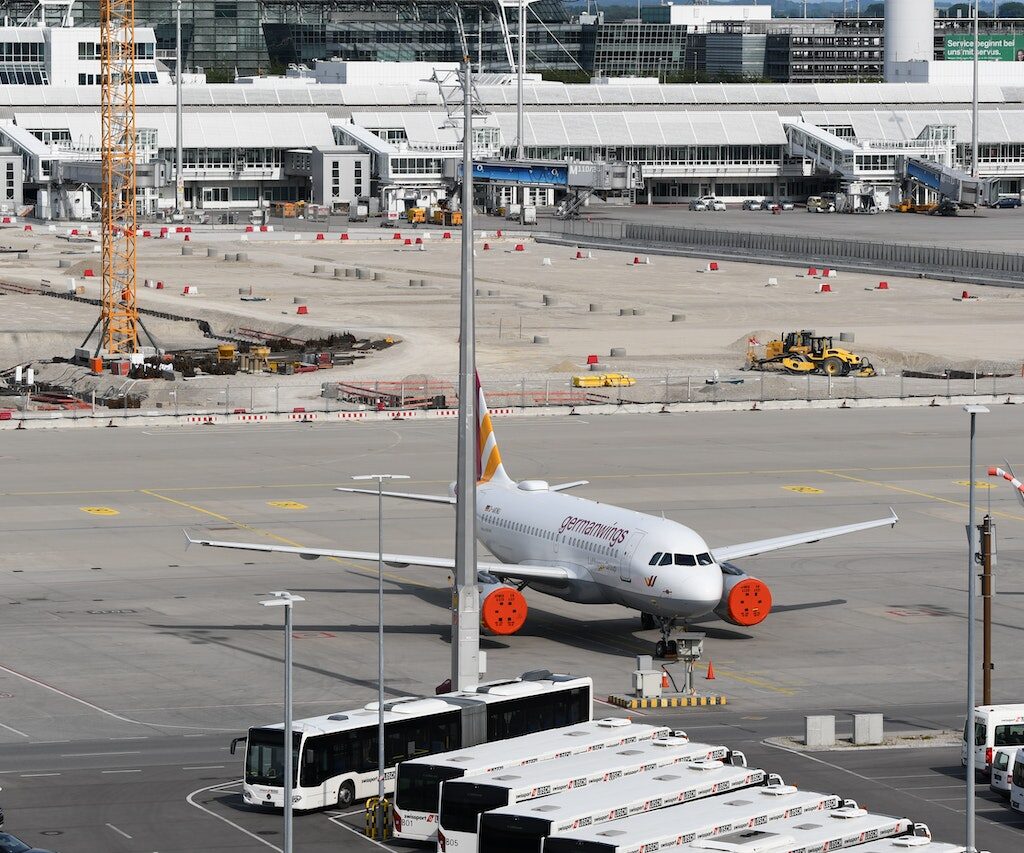In a world where international travel and business transcend borders, passports have become more than just pieces of paper; they’re gateways to opportunity. For the global traveler and businessperson, the strength of one’s passport can significantly impact their experiences. This article embarks on a journey to explore the relationship between passport power and various global indices, shedding light on the intriguing connections between mobility, economic freedom, innovation, and corruption perceptions. Join us as we delve into these remarkable insights and discover how these rankings shape the international landscape.
The Passport and Human Development Connection
Imagine a world where borders are open, travel is effortless, and the quality of life knows no bounds. While such a utopia remains a distant dream, the connection between passport strength and Human Development Index (HDI) ranks offers a glimpse into the correlation between international mobility and a country’s level of development.
One striking observation is the presence of many countries in both lists. Nations like Switzerland, Norway, Iceland, and Singapore appear, emphasizing that strong passports often coincide with high HDI ranks. These countries provide their citizens with the twin blessings of easy global travel and a high standard of living, education, and healthcare. It’s a symbiotic relationship where the passport’s power reflects a nation’s commitment to human development.
However, geographical patterns unveil themselves as well. The overlap between strong passports and high HDI ranks is most common among European countries and affluent Asian nations. These regions tend to offer both strong passport privileges and a superior quality of life, making them coveted destinations for international travelers and business professionals.
Yet, disparities emerge in this connection. Some countries possess strong passports but lower HDI ranks, such as Malaysia, Bulgaria, and Brazil. These variations can be attributed to factors like income inequality, political stability, or specific passport agreements. Conversely, high HDI ranks don’t always guarantee strong passport privileges. Countries like Bahrain, Saudi Arabia, and Qatar demonstrate that local geopolitics can impede a passport’s global mobility.
A unique case lies in Hong Kong, a Special Administrative Region of China, which is part of the HDI list but not the top-quality passports list. This highlights the special status and distinct passport privileges enjoyed by Hong Kong residents, shaped by unique political and administrative circumstances.
In conclusion, while a strong correlation exists between powerful passports and high human development, exceptions and variables persist. Factors like political relationships, diplomatic accords, and economic conditions can independently influence a country’s passport strength. This comparison paints a vivid portrait of the global mobility and quality of life enjoyed by residents of these nations, enticing international travelers and businesspeople to explore these diverse destinations.
Passports and Innovation: Unleashing the Global Mind
For the global traveler and businessperson, innovation is the lifeblood of progress. It transforms nations, fostering creativity, growth, and development. The connection between passport strength and the Global Innovation Index (GII) reveals intriguing insights into the role of mobility in the realm of innovation.
Several countries make appearances on both lists, reinforcing the notion that strong passports and high innovation capabilities often go hand in hand. Switzerland, Sweden, the United States, the United Kingdom, South Korea, Singapore, Germany, and Finland are among the nations that demonstrate this correlation. These countries are hubs of innovation, and their citizens enjoy the privilege of easy global travel.
Unlike the previous comparison, the geographical patterns are more diverse here. The countries that overlap between the two lists are not confined to a specific region. They can be found in Europe, Asia, North America, and the Middle East. This suggests that innovation and strong passport privileges are not limited by geography. Innovation knows no boundaries, and it thrives in various corners of the world.
Economic development is a key driver of this correlation. Many of the countries that feature on both lists are economically advanced and innovation-driven. This correlation suggests that strong economies contribute to robust passport privileges and a fertile environment for innovation.
The inclusion of countries like the United Arab Emirates and Saudi Arabia in both lists illustrates their active investment in innovation and technological progress. These nations are strategically shaping their futures by fostering creativity and development.
Still, regional disparities are evident. The GII list encompasses several countries from the Middle East and Southeast Asia not present in the top-quality passports list. These disparities highlight the nuances of regional innovation ecosystems and passport agreements.
In summary, there is a compelling connection between passport strength and innovation capabilities, but it’s a complex web of factors. Economic development, political dynamics, and regional variations can influence a country’s position in these two lists. International travelers and business professionals are encouraged to explore the dynamic innovation landscapes of these countries, where the boundaries between creativity and progress are continually pushed.

Photo by Max Walter: https://www.pexels.com/photo/white-passenger-plane-on-airport-4712519/
The Passport to Economic Freedom
Economic freedom is the elixir of prosperity, providing individuals and businesses the autonomy to flourish. The comparison of top-quality passports with the Index of Economic Freedom unveils the intricate connection between passport strength and a nation’s degree of economic liberty.
A noteworthy revelation is the presence of several countries in both lists, underscoring the link between strong passports and higher levels of economic freedom. Singapore, Switzerland, Ireland, Taiwan, New Zealand, and others are exemplars of this correlation. These nations are not only economically strong but also possess political systems that support economic freedom. For international travelers and businesspeople, this connection translates to favorable conditions for global business and trade.
Diverse regional patterns emerge from this correlation. The countries that overlap between the lists hail from various regions, spanning Europe, Asia, and the Americas. This signifies that economic freedom and strong passports are not restricted to specific geographic areas. Economic prosperity knows no borders, and the ability to facilitate international commerce is a passport’s added advantage.
China’s inclusion in the Index of Economic Freedom without a strong passport is a notable case, showcasing a country’s focus on economic freedom while not offering substantial passport privileges. It exemplifies the idea that economic freedom and passport strength do not always align perfectly.
In conclusion, there is a tangible connection between passport strength and the degree of economic freedom. Countries with robust passports often couple this privilege with economic prosperity and a supportive environment for global business. This relationship is influenced by various factors, including political and economic policies, and is dotted with exceptions. International travelers and business professionals can explore the diverse economic models and environments shaped by these nations, each with its unique take on economic freedom.
Unveiling Passport Power and Corruption Perceptions
In an era where trust and integrity are paramount, the perceived levels of corruption play a significant role in shaping a nation’s reputation. The comparison of top-quality passports with the Corruption Perception Index (CPI) provides intriguing insights into the potential relationship between passport strength and the perception of corruption in a country.
A striking observation is the significant overlap between the two lists. Several countries issuing top-quality passports also score highly on the Corruption Perception Index. Denmark, New Zealand, Finland, Norway, Singapore, Sweden, Switzerland, and the Netherlands, among others, demonstrate this connection. It suggests a potential correlation between strong passports and lower perceived corruption levels.
The nexus between low corruption and strong passport privileges is an interesting one. Countries that excel in both areas tend to have transparent and accountable governance systems. Such systems inspire trust in international dealings, making their citizens more welcome in other countries. This trust can translate into better passport privileges, easing international travel for their citizens.
Regional patterns reveal themselves as well. The countries that overlap between the two lists are not confined to specific geographic areas. They hail from diverse regions, including Europe, Asia, Oceania, and the Americas. This demonstrates that low corruption and strong passports are not limited by geography; these qualities are embraced in various corners of the world.
The comparison highlights the varied economic and governance models employed by these countries. While a connection between strong passports and low corruption exists, these nations may adopt distinct approaches, from social democracy to more liberal economic systems. Nonetheless, they all employ robust anti-corruption measures, including strong legal systems and institutions, to combat corrupt practices and foster low perceived corruption.
In conclusion, the comparison suggests a potential relationship between strong passport privileges and low perceived corruption levels. Countries with strong passports often maintain transparent and accountable governance systems that cultivate trust and reduce corruption perceptions. However, it’s essential to acknowledge that this relationship is not absolute. Other factors, including economic policies and historical contexts, can influence both passport strength and corruption levels. International travelers and business professionals can explore the diverse approaches to governance and anti-corruption efforts adopted by these nations, each contributing to the global fight against corruption.
Conclusion: Passport Power Unveiled
As an international traveler or businessperson, your passport is more than just an ID; it’s your key to the world. The correlation between passport strength and various global indices provides a captivating tapestry of insights for those exploring the globe for pleasure and profit.
Strong passports often lead to high levels of human development, making nations like Switzerland and Norway prime destinations for those seeking a better quality of life. The connection between passport strength and innovation is equally fascinating, with countries like Sweden and Singapore offering fertile grounds for creative minds to flourish. Economic freedom is a passport’s best friend, allowing international business to thrive in countries like Singapore and Switzerland.
In the battle against corruption, strong passports often align with low perceived corruption levels, fostering trust and transparency in international dealings. Countries like Denmark and New Zealand exemplify this connection.
Yet, these relationships aren’t always straightforward. Complex regional disparities, economic models, and unique cases remind us that the world is a diverse and dynamic place. As you embark on your international journeys, remember that a passport is not just a document; it’s a gateway to experience the world’s diversity, innovation, freedom, and integrity. Travel with an open mind and explore the global opportunities that await, whether for leisure or business. Your passport is your key to the world, and the world is waiting to be unlocked.


Leave A Comment